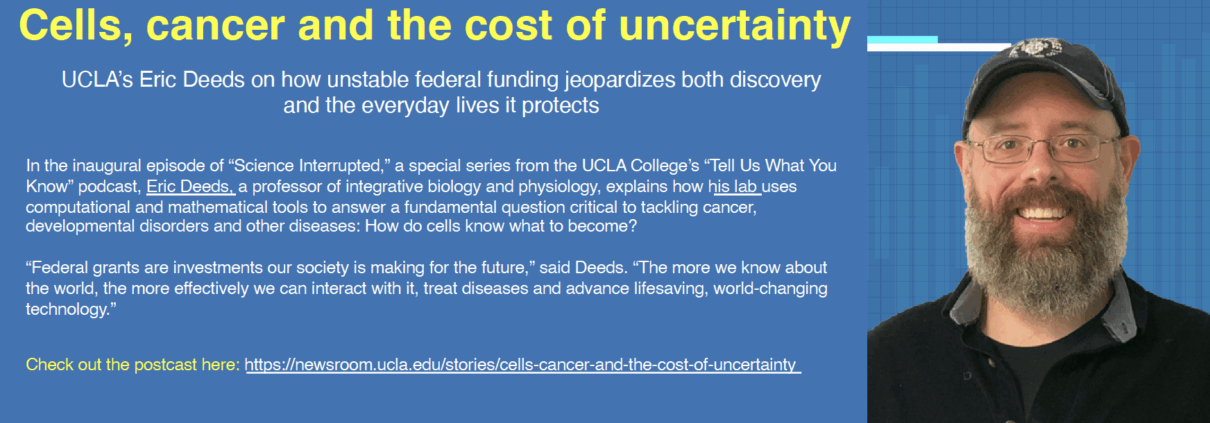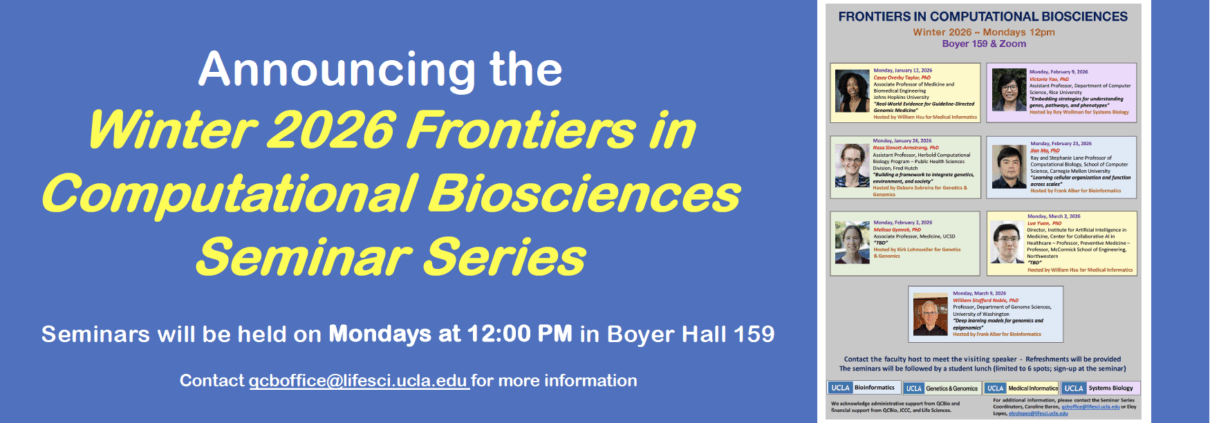The Institute for Quantitative and Computational Biosciences is a partnership between the UCLA College, the Health Sciences, and Engineering. Its associated faculty span more than twelve departments, and a broad range of biological and biomedical research areas – yet, the hallmark of QCBio faculty and their laboratories is the commitment to quantitative reasoning and the development of algorithmic and computational methods.
QCBio’s mission is to support quantitative and computational biosciences research, training, and education. As new measurement capabilities and public data bases are rendering the biosciences – whether basic, translational or clinical – increasingly data-rich, the challenges and opportunities for data analysis and interpretation are a hallmark of all aspects of biosciences research. Further, vast quantities of knowledge – the result of prior research investments – should be harnessed for computer-aided data interpretation and prospective prediction. Thus QCBio addresses the opportunities and challenges of data-driven and knowledge-based computational modeling in the biosciences.
QCBio fosters research into the development of algorithms, software, statistical, mechanistic, and dynamical models, as well as intra-institutional and international collaborations. QCBio provides research training and expert collaborative support via the Collaboratory. QCBio functions as the academic home and sponsor of the inter-departmental programs in Bioinformatics, Biomedical Informatics, and Computational and Systems Biology, at the graduate and undergraduate level. QCBio organizes a major summer undergraduate research program, Bruins in Genomics, that provides substantive graduate school preparation.






















